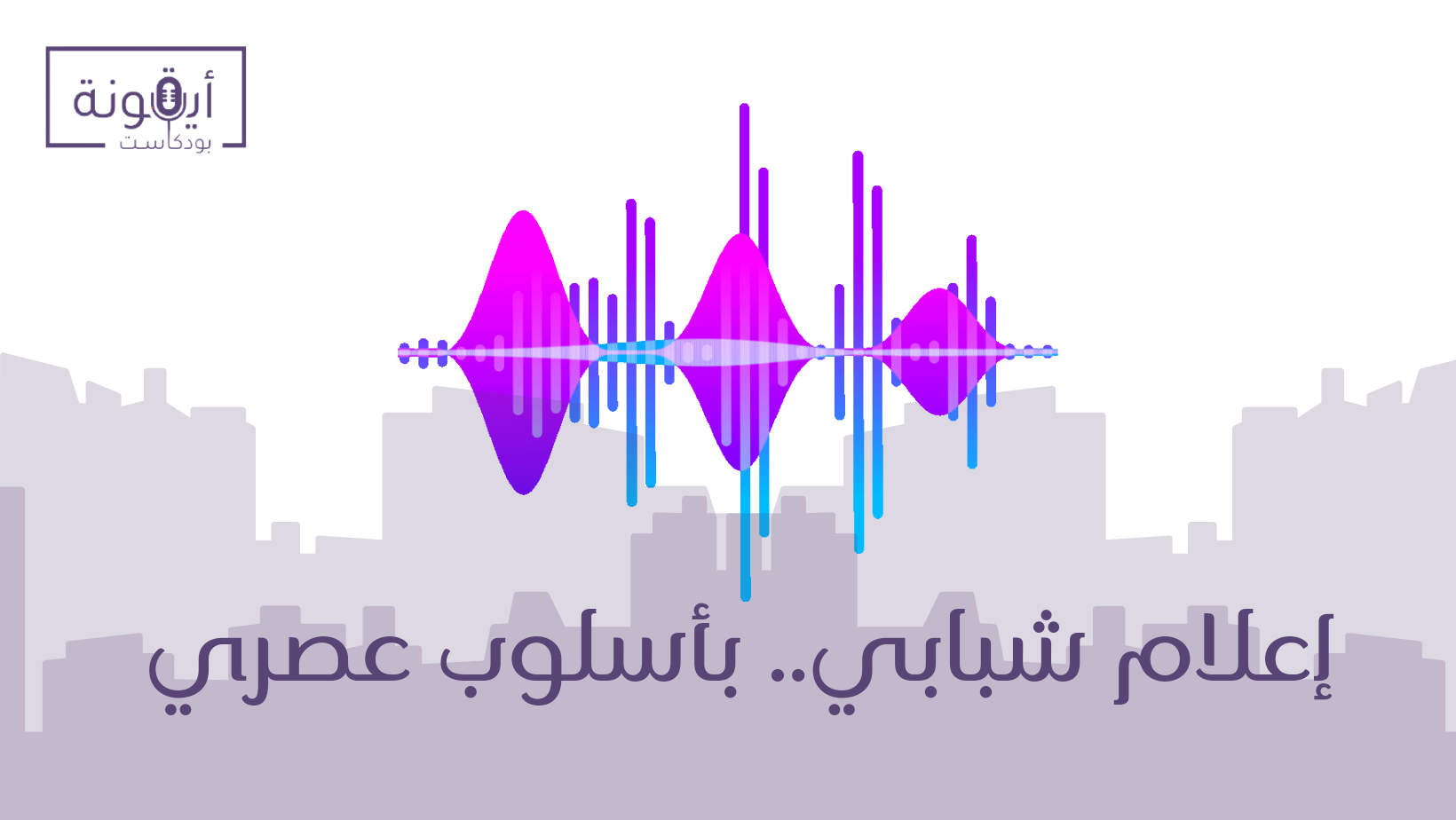تتجاوز نسبة الشباب ما دون سن الـ30 حوالي 65% من السكان في العالم العربي، وعلى الرغم من ذلك، فإن حضور اهتمامات هذه الفئة في الإعلام العربي يبدو أقل من ذلك بكثير، وذلك عائد لأسباب متعددة منها: تدني نسبة تمثيل الشباب في صناعة القرار السياسي وعدم مشاركتهم في إدارة المؤسسات الإعلامية بفاعلية.
هذه التحديات تفرض أنماطاً من المحتوى الإعلامي البعيد عن ملامسة احتياجات الشباب أنفسهم، وعن مناقشة الصعوبات التي يتعرضون لها وتؤثر على مستقبلهم، كما أنها تضع حاجزاً بين الشباب وقدرتهم على الانخراط في عملية التغيير، وذلك نتيجة لعدم حصولهم على المعلومات اللازمة لتكوين رأي عام شبابي قادر على مزاحمة بقية الفئات العمرية في ميدان العمل العام.
يركز الإعلام العربي في تغطياته على ما تعيشه المنطقة من حروب وصراعات ومجاعات، وأحياناً على بعض النجاحات التي ترتبط دوماً بالسياسيين الكبار في السن، ويمكن للمشاهد ملاحظة تغييب طموح الشباب العربي، وخصوصاً أولئك البعيدين عن المركز، والذين يعيشون في الأرياف والمناطق النائية.
تركيز الإعلام على الشأن العام المرتبط بالشباب ينحصر غالباً في خطوط عريضة وتغطيةٍ للفعاليات التي يحضرها الشباب، وبعض التقارير القصيرة التي تستطلع آراءهم في نهاية البرامج؛ وهو ما يعلق عليه عضو القيادات الشبابية اليمنية حمزة القاضي قائلا: "للأسف لا يعبر الإعلام عن مطالب الشباب، وليس هناك مساحة تتركها الحربُ وتداعياتُها المتسارعة لتسليط الضوء على أي موضوع آخر، ومن ذلك المواضيع التي تهمّ الشباب".
في السياق، توصّلت دراسة حول الشباب ووسائل الإعلام في فلسطين إلى أن 71% من الشباب الفلسطيني يتابعون الأخبار المحلية وتتصدر اهتماماتهم، في حين تصدرت متابعة الأخبار الإقليمية والدولية اهتمامات 14% من الشباب الذين شملتهم الدراسة، في حين أشار 15% إلى أنهم لا يتابعون الأخبار إطلاقاً؛ كما تلفت الدراسة النظر إلى أن 49% من الشباب غير راضين عن الدور الذي تقوم به وسائل الإعلام الفلسطينية في معالجة قضاياهم.
الإعلام الرقمي.. ملاذ الشباب الحر
إن شُح البرامج التي تتحدث عن الشباب، وتناقش القضايا التي تهمهم، والتحديات التي تواجههم، على وسائل الإعلام التقليدية، ساهم في بحث الشباب عن بديل للتعبير عن آرائهم كالإعلام الرقمي، خصوصاً مع قلة تكلفة الإنتاج، واتساع الفضاء للنقاشات المتنوعة.
إحدى الوسائل التي استعملها الشباب بكثرة خلال الفترة الماضية هي الوسوم على مواقع التواصل الاجتماعي، ففي المغرب مثلاً تصدّر وسم #حلو_دار _الشباب "ترند" الفيسبوك وأصبح حديث رواد وسائل التواصل الاجتماعي، إذ يذكر الناطق باسم الحملة الترافعية محمد كلوين في أحد تصريحاته أن دُور الشباب تظل هي المؤسسة العمومية الوحيدة التي لم يُتخذ لحد الآن قرار بفتحها، ويعود ذلك إلى غياب صوت وزارة الشباب والرياضة، وبالتالي حرمان الشباب المغربي من متنفس على مستوى الإبداع وتنمية المواهب، وإبراز المهارات الفنية والثقافية و الرياضية.
وفي ليبيا، عبّر نشطاء تحت وسم #شيّابين_لا عن مطالبهم بإفساح المجال للشباب وإعطاء الأولوية لهم للترشح للسلطة.
أصبح الإعلام الرقمي حرفة الشباب ومتنفسهم الوحيد، فهم يستطيعون من خلاله تقديم محتواهم الإعلامي الخاص، حتى أن البعض اعتبره أحد مصادر دخله، وانتشر ما يعرف بإعلام الهاشتاغ أو إعلام الوسم (#) وهو كثيراً ما يستخدم من طرف الشباب، حيث يعتمدون عليه في التعبير عن آرائهم، ومطالبهم، ومسابقاتهم ومشاركاتهم في العالم الذي ينتمون إليه؛ مستخدمين بذلك وسائل التواصل الاجتماعي المعتمِدة لتقديم المحتوى بكافة أنواعه، حتى أنه في بعض الأوقات تنظّم العديد من الدورات والمسابقات لتشجيع صناعة المحتوى الرقمي الخاص بالشباب.
ومن الأمثلة الناجحة في الإعلام الشبابي الفردي، استطاع الشاب اليمني هاشم الغيلي تقديم محتوى علمي بطريقة جذابة، حتى أصبح حسابه على الفيسبوك أحد المصادر العلمية لكثير من الشباب، حيث يَنشر تقاريرَ علميةً معقدة بشروحات بسيطة، نال على إثرها شهرة وتفاعلا عالميين، إذ شوهد المحتوى الذي ينشره 12 مليار مرة، ولديه أكثر من 30 مليون متابع من جميع أنحاء العالم.
الشاب السوري عمر مسكون، مثال آخر لصنّاع المحتوى الإعلامي الشبابي، حيث يقوم بإنتاج مسرحيات فكاهية عبر يوتيوب تُعنى بالحياة الشبابية ويتابعه حوالي 3.77 مليون على يوتيوب و3.4 مليون على منصة إنستغرام. ومن السعودية تميّز الشاب عبد الرحمن أبو مالح في #بودكاست_فنجان، وهو برنامج اجتماعي وحواري تناقش كل حلقاته مواضيع تُعنى بالشباب، بأسلوب بعيد عن التكلف، وتتم متابعته من 15 دولة حول العالم.
من جهتها، تؤكد المستشارة الإعلامية نبيلة سعيد الحضور الإعلامي للشباب في 2021، مشيرة إلى أنه بات في أعلى سلم أولويات بناء الإستراتيجيات الإعلامية، سواءً على مستوى الأدوات أو الوسائل الإعلامية، مضيفة أن الشباب هم الفئة الأهم فى بناء منظومة الإعلام في الدول، خاصة بعد التعثرات التي شهدتها جوانب مختلفة من الحياة، وربما ساهمت التقنية والإبداع والتميز الذي يتمتع به الشباب بإيجاد الكثير من الحلول لها، ولذا يمكن أن نقول إن الحضور الإعلامي للشباب أصبح الحاجة التي لا تنتظر التأجيل أو التأخير أو التبديل. ومن جانب آخر فإن الحضور الإعلامي الفعّال، يحتاج إلي تدريب وتأهيل واحتراف، ليكون على مستوى التطلعات.
إن التركيز بشكل جديّ على أحلام الشباب، وتصوراتهم لمجتمعاتهم، وللقضايا التي تؤثر عليهم بشكل أو بآخر، سيساهم في خلق إعلام مختلف يُعنى بالمجتمع ككل، ويسلّط الضوء بشكل متساوٍ على جميع فئات المجتمع، وبالتالي يجد الجميع حضوراً لاهتماماته، وحلولا لمشاكله.
المصادر:
الجزيرة: https://youtu.be/ADbr0Wg0NYc
العربي الجديد:
وسائل التواصل الاجتماعي/يوتيوب وانستا عمرو مسكون
أنفاس بريس: https://anfaspress.com/news/voir/77130-2021-02-27-01-08-47
البودكاست العربي: https://ar-podcast.com/fnjan/
شبكات الشباب المتوسطي:







































